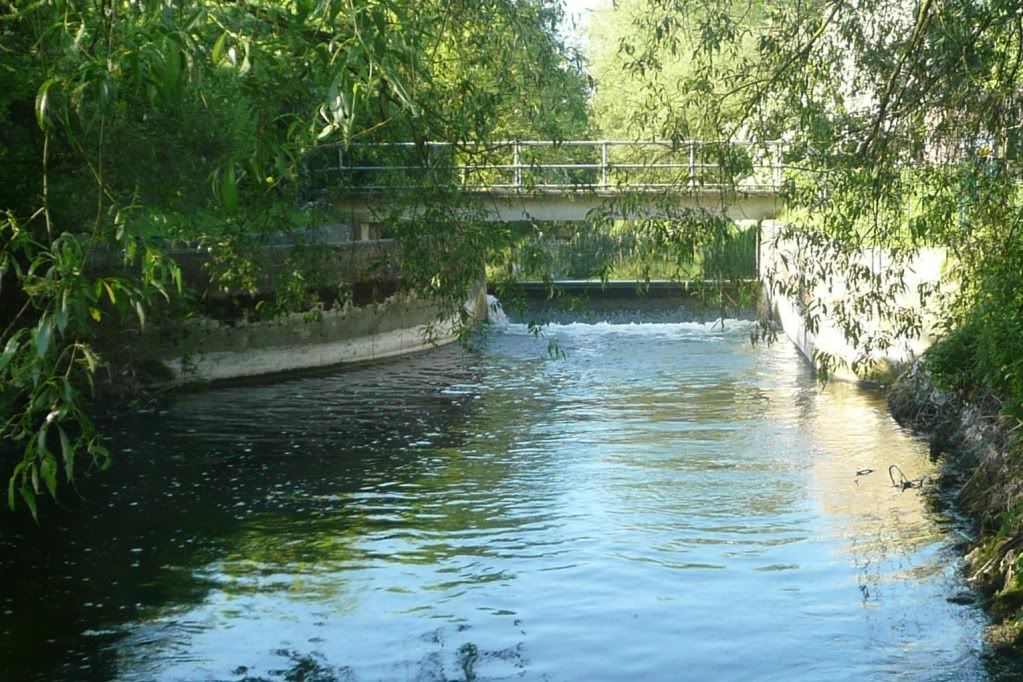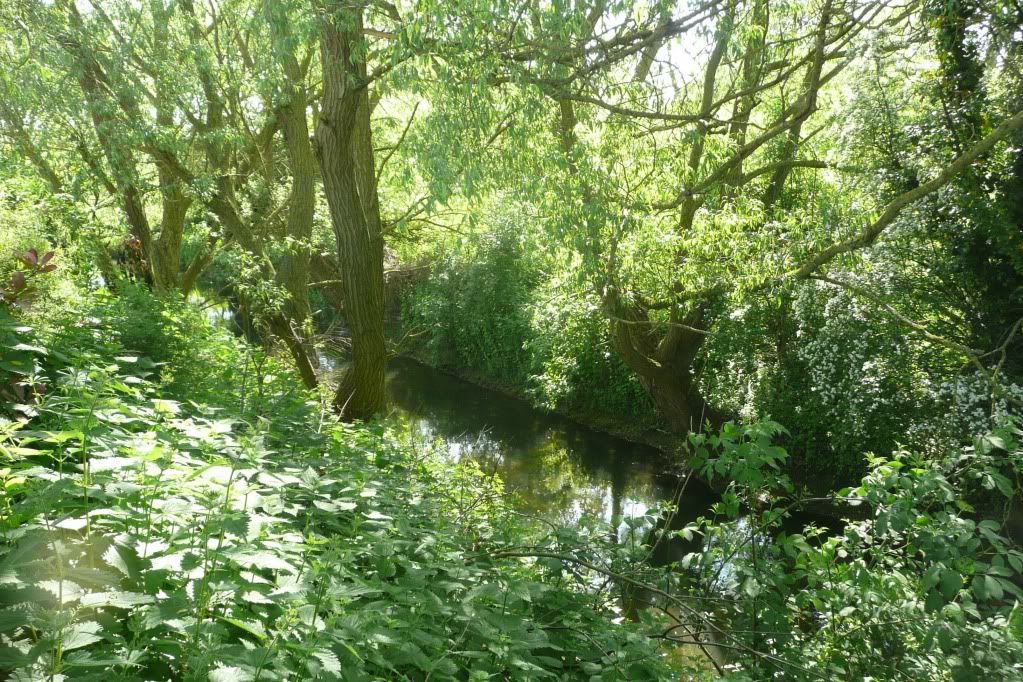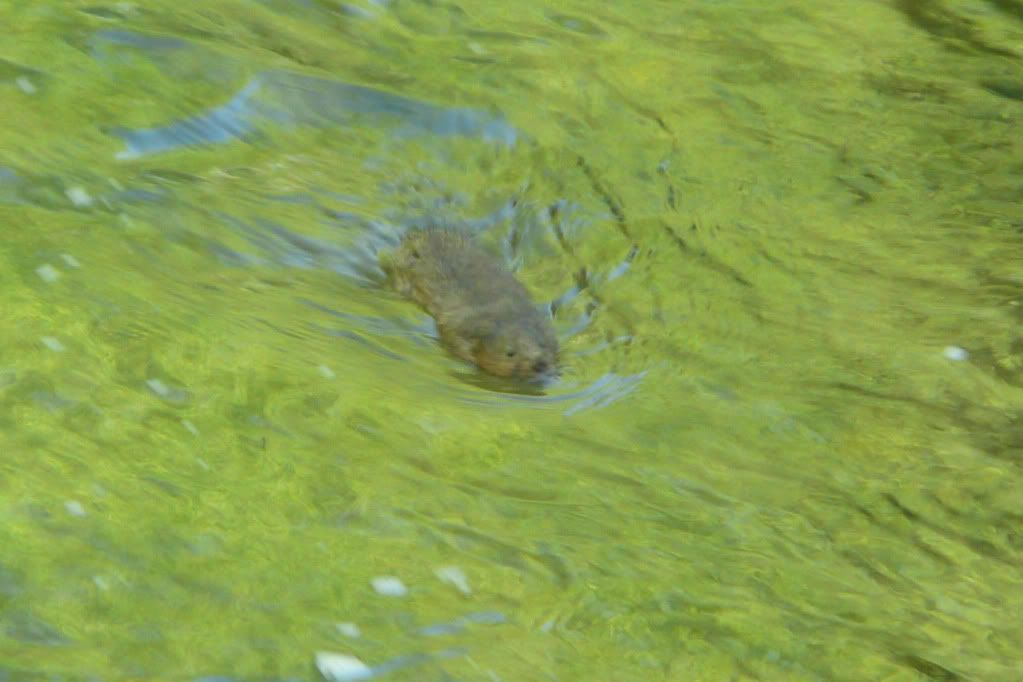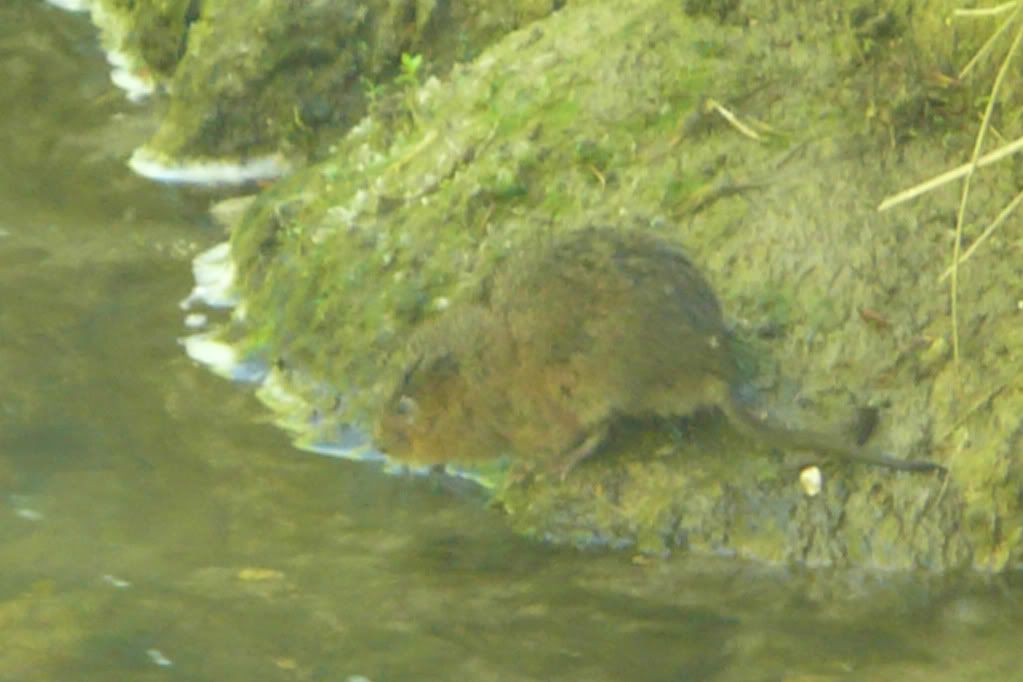Having surveyed up to the weir, I've spent most of the past week or so exploring beyond it. The weir divides the river into two - the upper and lower ocks:
I haven't spent much time on the upper ock - it's proximity to the retail units, residential flats and the amount of undergrowth mean it can be difficult to gain access to the river banks
Plus I've thought of the weir as a natural barrier for the water voles to progress downstream (and for predators progress upstream).
Still for the sake of completeness and to assist the BBOWT water vole survey I have spent the past couple of weeks surveying it.
Although difficult to gain access to, thanks to the use of x40 digital zoom there do seem to water vole burrows
Then on one evening, I saw two water voles - what seemed like a make pursuing a some what reluctant female - by the footbridge near the weir.
So the 2010 water vole map now contains these new sightings in blue. It also clearly shows weir and the proximity to the other sightings, so despite what I thought, the weir was no barrier at all.
View Water voles 2010 in a larger map





Your persistance has paid off! I don't think I've got as much patience as you.
ReplyDeleteI wonder if the male water vole's persistance has paid off too. How long would it be before babies appear?
Well done on more excellent photos.
Rachel
Water vole gestation takes about 20 days and then young voles leave after about another 20 days. So if she finally succumbed to his volean charm then we might see young water voles at this spot in mid July.
ReplyDeleteThe question is, am I persistent enough to find out?
Your observations of what does and doesn't constitute a barrier are really useful and interesting, Richard.
ReplyDelete